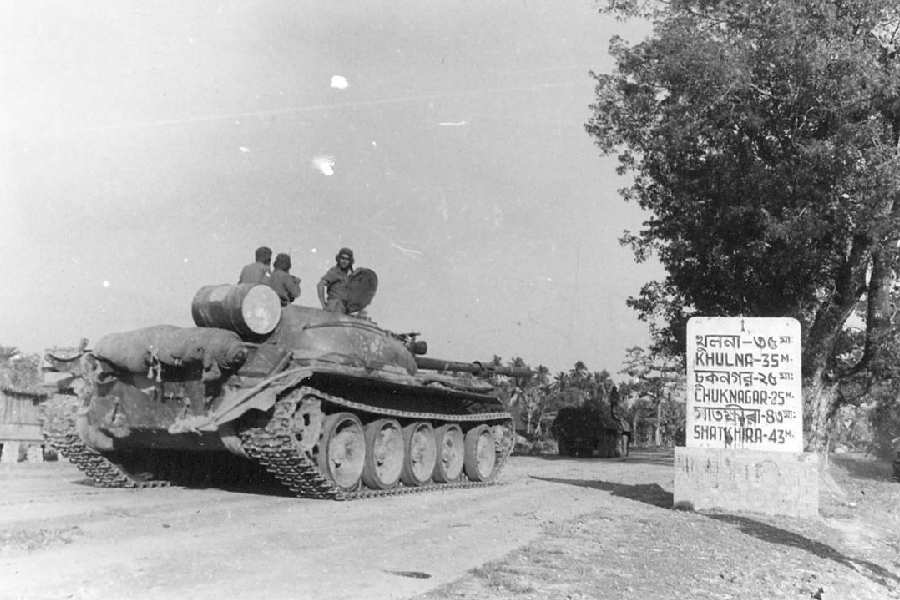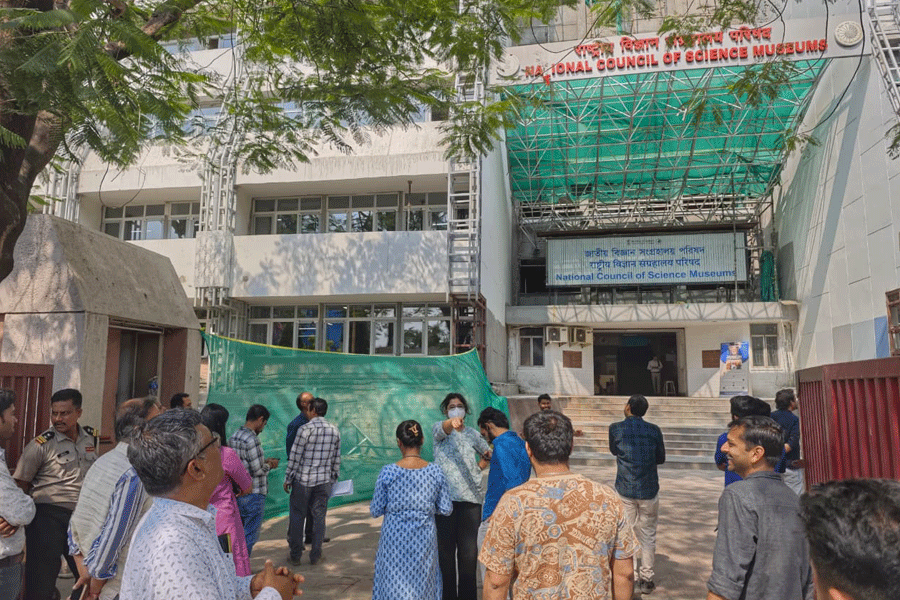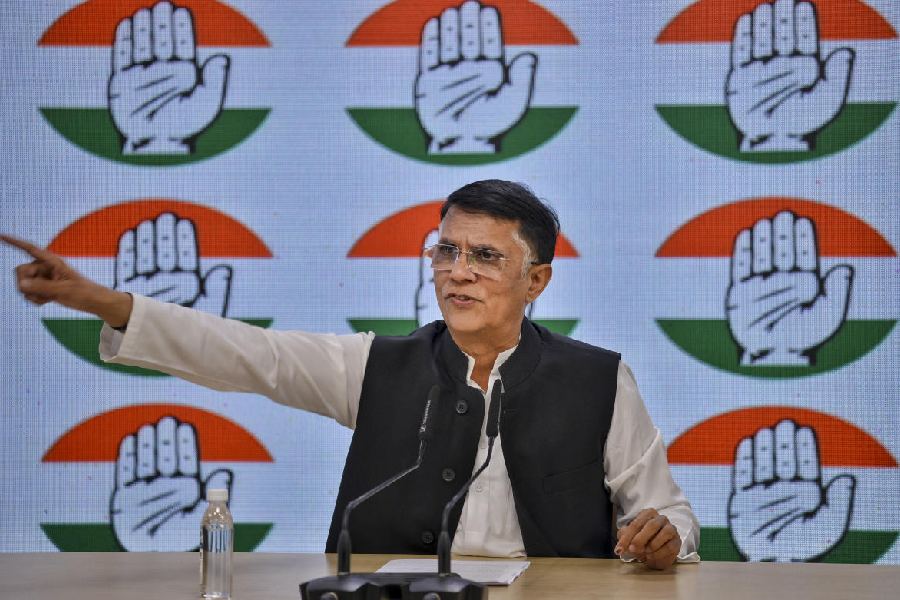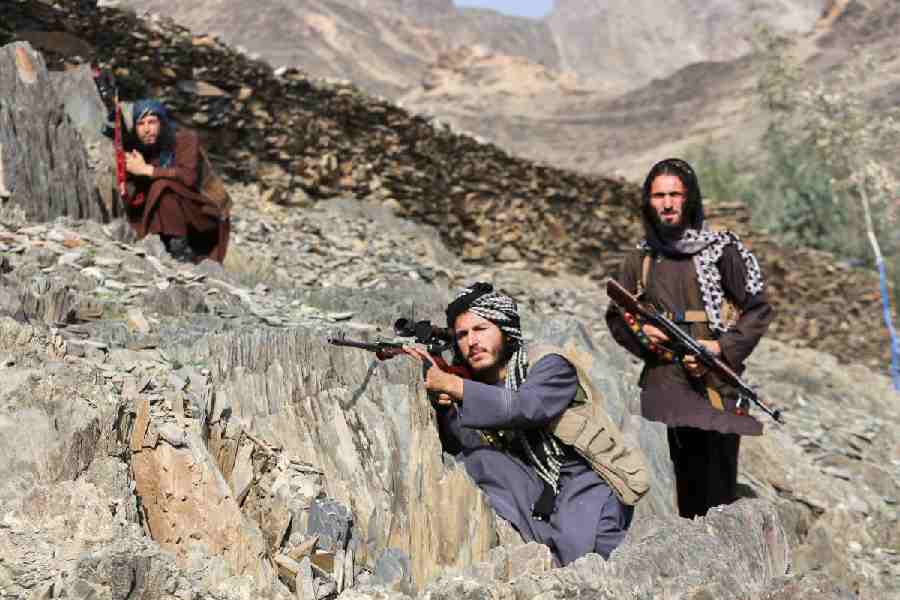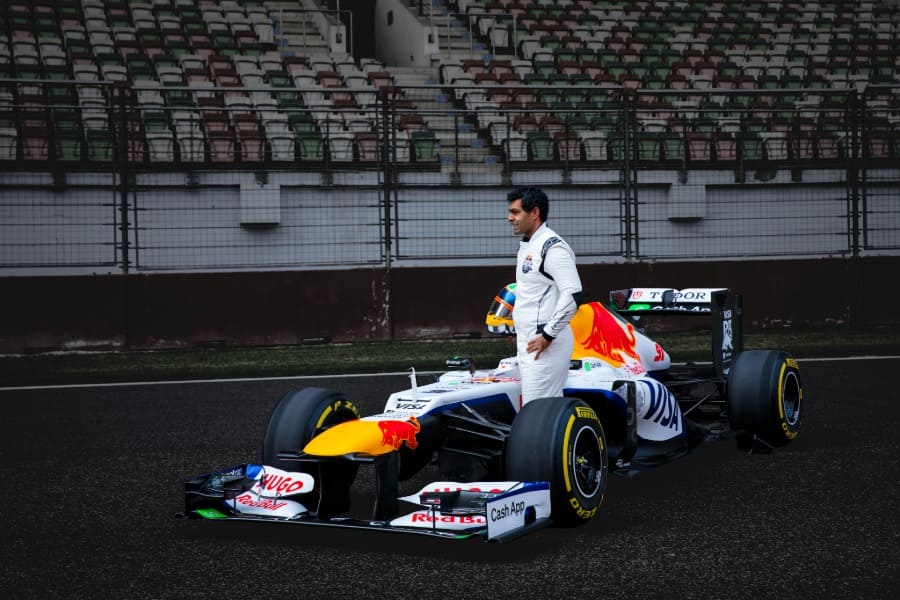The creation of Bangladesh has been of no use to India. On the contrary, it has done us harm. We created a monster that is now trying to eat us,” said former Member of Parliament Bikram Sarkar.
He was speaking at a BK Block session hosted by Bidhannagar Buddhijibi Shongho to discuss what many Indian have been mulling since the recent deterioration in Indo-Bangla ties: back in 1971, was India right in helping create Bangladesh?
“It was a hasty decision to help liberate our neighbour from Pakistan; one that was done only to satisfy (the then Indian Prime Minister) Indira Gandhi’s ego,” continued Sarkar.
Also on the list of speakers were war veteran (retd) Captain Amalendu Roy Chowdhury who had fought in the ’71 war, retired journalist Manash Ghosh, who has authored the book Bangladesh War: Report From Ground, and social worker Santi Karar, who is currently writing a book on Bangladesh. The discussion was moderated by convenor of the group, Chandra Sekhar Bag.
Mujib and India
“Two thousand five hundred Indian soldiers lost their lives in the liberation war. One would think the Bangladeshis would be grateful for our sacrifice but they started insulting Indian leaders and our government immediately after independence,” said Karar. “And make no mistake, Mujib was no friend of India.”
The speakers explained how Sheikh Mujibur Rahman, the founding president of Bangladesh, was affiliated with All-India Muslim League, the party that pushed for independent India to be partitioned in the first place. “Mujib had a big role to play in Direct Action Day,” alleged Ghosh, referring to the widespread communal violence in Calcutta on August 16, 1946 when the Muslim League took to the streets to demand a separate Muslim homeland after Independence.
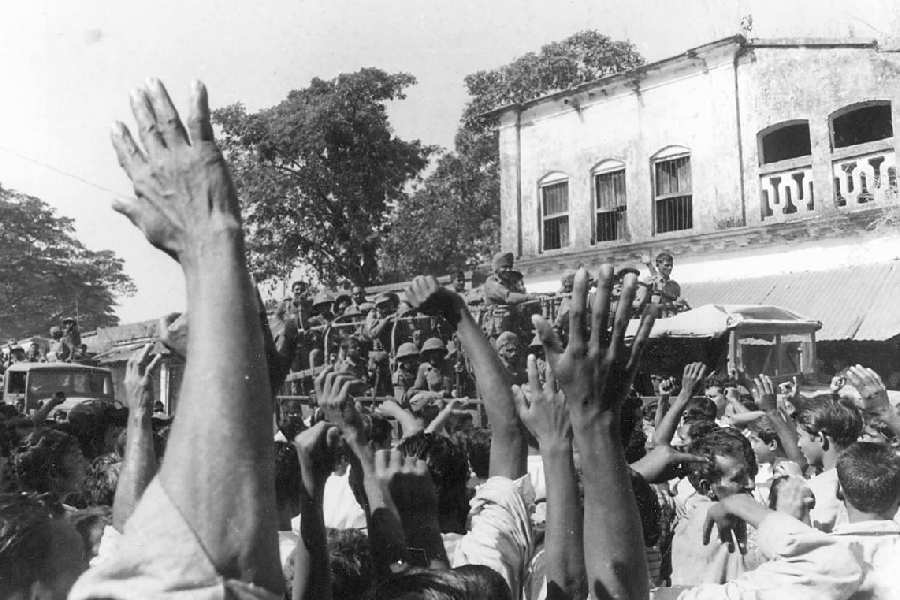
Bangladeshis cheer the arrival of the Indian Army in 1971
“Mujib wanted to be the Prime Minister of Pakistan and his party Awami League even won a landslide victory in the first general elections held there in 1970. But opposition leader Zulfikar Ali Bhutto and President Yahya Khan bluntly refused to accept a Bengali Prime Minister. This is the grudge that Mujib nursed and used as a build-up to break away,” said Karar, a resident of CK Block.
Page in history
Ghosh explained how Mujib then led the liberation war by focusing on the Bengali identity, rather than religion, of their people. “And India did not intervene in their war; Mujib asked for our help repeatedly,” said the AL Block resident, detailing how Mujib sent Tajuddin Ahmad, soon-to-be first Prime Minister of the country, to sneak into India and seek help from Indira Gandhi.
“Indira Gandhi agreed and arranged for the Indian army to train their people (Mukti Bahini) in guerilla warfare. In the meantime, their provisional government needed to be sworn in, for global support. This was planned and executed in great secrecy. The venue was Baidyanathtala, an area on Bangladesh soil near the border that was covered by India from three sides. This was the Indian army’s best bet to protect them. The place also had thick mango orchards, which would act as a natural canopy against Pakistani reconnaissance aircraft,” he said.
On April 17, 1971 journalists were asked to assemble at Calcutta’s press club at 4am, and without any more information, were driven for four hours to this unknown location. “There they sang their National Anthem Amar Sonar Bangla, hoisted the Bangladeshi flag, and read out the proclamation of independence,” Ghosh recalled what he had witnessed.
Tajuddin also secretly met Hossain Ali, the deputy high commissioner of Pakistan in Calcutta, and convinced him and his 70 Bengali staffers to deflect. That set the ball rolling and all over the world others started deflecting.
Art of war
Captain Chowdhury recalled how he was called to train the Mukti Bahini out of the blue. “I was only 22 or 23 then. I was posted in the western sector and had come to Calcutta upon the death of a relative. We had no inkling of the developments in East Pakistan but when other officers got wind that I was here, they sent me to Barackpore to assist in the training as I spoke their language,” said the Jal Vayu Vihar resident.
Fighting in the east was much tougher than on the western frontier. “We had no experience on this terrain. How would tanks cross the many rivers here? Plus here, we had to be careful about dealing with locals as they would turn on us if there was any misunderstanding. We’d teach the Mukti Bahini sabotage techniques and they would show us roads,” he said.
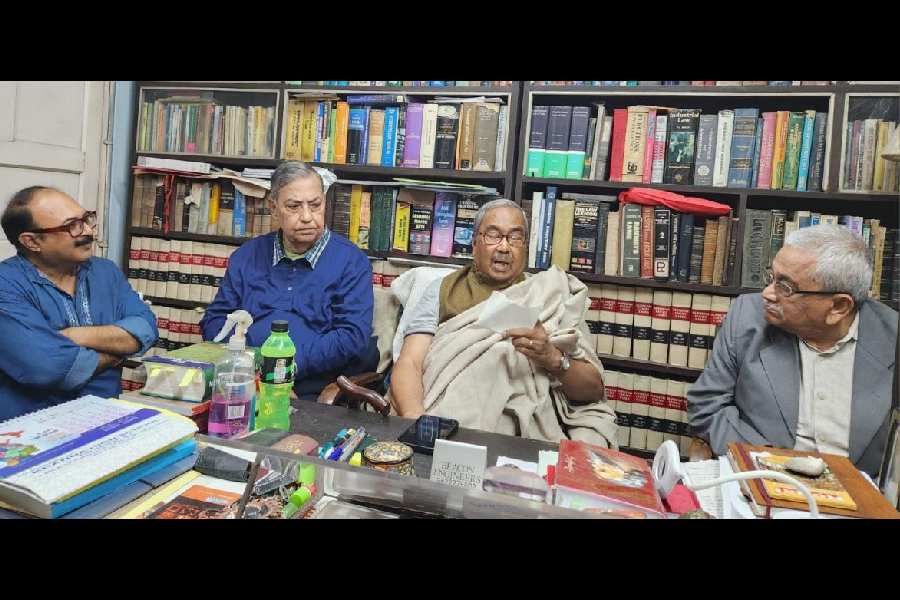
Speakers discuss the Bangladesh issue in BK Block Brinda Sarkar
Karar shared three instrumental moves that gave India the edge in the war, of which the first is a popular conspiracy theory.
In January 1971, an Indian Airlines flight was hijacked to Pakistan and burnt. India retaliated by banning Pakistani aircrafts from Indian airspace. “Later in the war the ban had a major impact on troop movement from West to East Pakistan, and it is said that the hijackers were actually working for RAW and that the entire event was staged so we could block their planes,” he said.
Another turning point was the Indo-Soviet Friendship Pact of August 1971 which cemented ties between the two nations, and this led to the third turning point of the war. “With Soviet help, India sank PNS Ghazi, Pakistan’s most powerful submarine that they were sending from the west to the east,” Karar said. Pakistan claimed the Ghazi drowned accidentally but India claimed that its warship destroyed it.
Lost opportunity
“Indira Gandhi saw East Pakistan as a thorn,” said Karar. “We were facing so much disruption from this eastern border, and spending so much money in controlling the same that she felt separating it from Pakistan would be a permanent solution,” said Karar.
“But we got complacent after carving out the country and dropped our guard. Our emotions got the better of us. Instead of politics, we let poetry rule our hearts. And our expenditure on this border has only increased since 1971,” said Sarkar, who felt the war was also a lost opportunity to claim Chittagong.
“Mujib was so desperate at the time that he would have agreed to whatever Indira Gandhi asked for. And it was a blunder on her part to not ask for Chittagong,” said Karar. “We sacrificed our soldiers and spent our money to feed their people, so for the sake of our seven sister states, we should have taken Chittagong. Without it, the ‘chicken neck’ on India’s map is always vulnerable.”
Good riddance
From the audience, (retd) Col R.K. Bhattacharya shocked everyone saying he was happy with the current turn of events. And then he elucidated. “Even when Bangladeshis came to us for training they were anti-India, but on paper we were friends. We always had this enemy, who we couldn’t call enemy. Now that we’ve set the record straight, we can focus clearly on our course of action. I’m happy,” said the CL Block resident.
Bag, the convenor, said this topic had been hounding him for long. “Geographically Bangladesh is closest to us and we speak the same language too so why have relations soured so much?” wondered the advocate, in whose house the meet took place. “Everyone is talking of our relations now but the youth, particularly, does not know how much shared history we have. Today’s meet was held so we could hear it from those who have been involved with the creation of the nation.”

